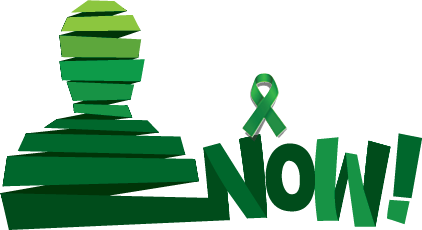Breaking The Silence: The Journalist Trauma Blog: Zoe Flood
Following is a blog by Zoe Flood, an independent journalist and filmmaker. Zoe was in Nairobi on Sept. 21, 2013, when gunmen from Somalia's al Shabaab group attacked the upscale Westgate Mall. Sixty-seven people were killed during the raid and four-day siege by security forces.
Zoe has written, filmed and produced for media including the BBC, the Guardian, the New York Times, Huffington Post, CNN, Channel 4, Sky News and National Geographic.
This is the second piece in an occasional series I’m publishing for journalists who want to share their stories through my FB & LinkedIn pages. Zoe first posted this blog on medium.com. She writes powerfully and emotionally about vicarious trauma. And why journalists bear witness. Thank you Zoe.
By Zoe Flood
Ten years ago, I was having a usual Saturday morning potter when I suddenly saw on Twitter that shots had been fired in the Westgate shopping mall in Kenya.
I reposted it.
On one level I wanted to believe the comments online suggesting that it might be a bank robbery.
But deep in my heart, I already knew.
I had been following the activities and pronouncements of al-Shabaab for several years — particularly since they declared jihad on Kenya after the country’s military incursion into Somalia.
After that statement in late 2011, I wrote to my then-partner “That’s Westgate out, then”.
I wish I had shouted it from the rooftops.
While I had made the decision to stop going to Westgate about two years earlier — it just felt too unprotected, too much of target — many people had got up that sunny morning and trusted that they could safely spend their Saturday in their local shopping mall.
Sixty-two of them would never go home again, and nor would five Kenyan soldiers. Hundreds would be left injured, thousands more with their lives dramatically changed — forever.
Although I wasn’t in the mall that day, the Westgate attack changed my life too.
Reporting on it was one of the most challenging professional experiences I’ve faced; witnessing it as a human and a resident of Nairobi was one of the most painful things I’ve had to come to terms with.
I feel guilty even expressing these feelings. What right do I have to feel any pain at all, when I didn’t have to go through the utterly terrifying experiences that everyone in that building had to go through on that most awful of days ten years ago?
Westgate taught me what true fear — terror — looks like, and I will never forget seeing it on the faces of all those who ran out of the building. It taught me what trauma sounds like in people’s voices — the cracks, the breaks — and how they wear it on their skin. It taught me how bewildered and grateful people are to be alive, when they came so close to death. And it taught me how grief can overwhelm a whole city — and drown so many in its path.
As the stories began to come out, little by little, as so many traumatised souls chose to share what had happened to them that day — and some chose not to — I felt grateful to be able to play my part as a journalist.
And I’ll never forget what I heard, and the experience of listening to survivors share their hair-raising, terrifying accounts.
I think so often of all the people I met who lived through that terror — one of whom, Amber, has become one of my very closest friends. We often talk about all that happened, and I’m grateful that she feels comfortable enough with me that she feels that she can speak about it openly. Her young daughter Amelie, who also survived unthinkable horrors, is a teenager now, and we have started to talk about it too.*
But above all, I think so often of all the people who lost their lives that day.
When the shopping mall finally reopened — shockingly without any memorial to mark the lives that were lost there — I visited on my own and walked around to every place where I knew people had died. I said their names to myself and, in my own god-less way, said a prayer for each of them.
It was a very, very long visit.
I’m thinking of each of them today, of their families who have had to live for ten full years with such terrible suffering and grief deeply embedded in their lives. How I wish things could have been different, how I wish those lost lives had continued.
I think of Ravindra Ramrattan, whose girlfriend I met outside the mall in bare feet, heels in hand, desperately trying to call his number. I think of Elif Yavuz and Ross Langdon, who died in each other’s arms, with their baby due so soon. I think of the dozens of Kenyans who went to work that day, who went out to the shops on an errand, or to join in a children’s cookery competition, and who never left. Of the mothers and daughters who died together. Of the poets, lovers, brothers, sisters, parents, children, who never got to go home to theirs.
My thoughts are not much to offer but they are all I can. Let us say their names and hold their precious lives in our hearts.
And let us live our lives in full voice and spirit — and with full joy and gratitude — because they, so tragically, cannot.
*Amber and Amelie consented to be mentioned by name – and both they and Ravindra’s girlfriend reviewed this post.
Photo of Zoe Flood working in Zimbabwe/By Nichole Sobecki/VII


